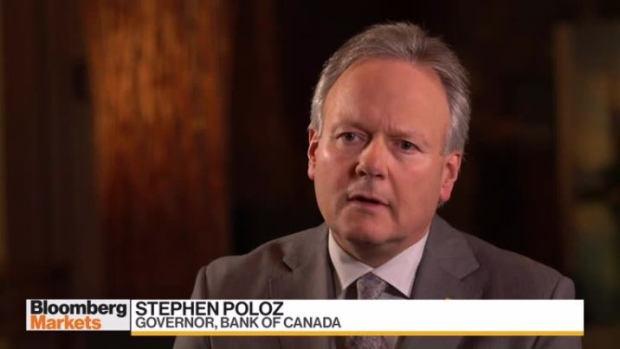Jun 4, 2018
'Mother Nature' driving Vancouver, Toronto housing: Stephen Poloz

After years of hand-wringing over foreign investment in Canada’s most-scrutinized housing markets, Bank of Canada Governor Stephen Poloz argues fundamentals are at work as prices climb back in Vancouver and Toronto.
“A year-and-a-half ago we had the changes in the Vancouver market and there was an initial effect and then a bounce back, and that just shows you that Mother Nature is still there – that the fundamentals for housing remain quite strong,” Poloz said in an interview with BNN Bloomberg late Friday in Whistler, B.C.
“And I think the same thing is there in Toronto – that’s what it looks like. There’s very, very strong fundamentals.”
WEIGH IN
Which of these is the biggest threat to business investment in Canada?
The latest data from the Toronto Real Estate Board paints a picture of a housing market that, if nothing else, is stabilizing. Indeed, the average selling price across the Greater Toronto Area reached $805,320 in May. While that's a far cry from the peak of $920,791 in April 2017, it marked a fifth consecutive month of sequential gains.
Home buyers and sellers have been navigating a whirlwind of policy changes for almost two years. The British Columbia government introduced a tax on foreign buyers in Vancouver in August 2016. Ontario's Liberal government followed with intervention of its own in April 2017 when Premier Kathleen Wynne unveiled her 16-point Fair Housing Plan, built around a tax on speculators. And in January, a rigorous new mortgage stress test was applied to home buyers who make down payments of at least 20 per cent.
On top of all of that, the Bank of Canada has raised its benchmark interest rate three times since last summer, driving up the cost of borrowing.
"This was never about controlling prices or the housing market," Poloz said about regulatory changes. "It was about improving the quality of indebtedness to make it more sustainable. And by all accounts, that's looking like it's moving in the right direction."
Household debt levels in Canada went on a record-breaking run amid historically low interest rates in the wake of the global financial crisis. As of the fourth quarter of 2017, Canadians owed almost $1.73 for every dollar of disposable income.
However, Poloz said he is confident that the financial burden will become more bearable with time.
"Our belief is that [debt accumulation] is just an unusual cycle and that we're converging back to a normal economic performance, and that will give us a period during which those debts will – relatively, to the size of the economy – recede in importance,” he said.
"Will debt still be there in 10 years? Yes, it will be," Poloz added. "But the sustainability of it will improve through time as the economy grows at its potential rate."

